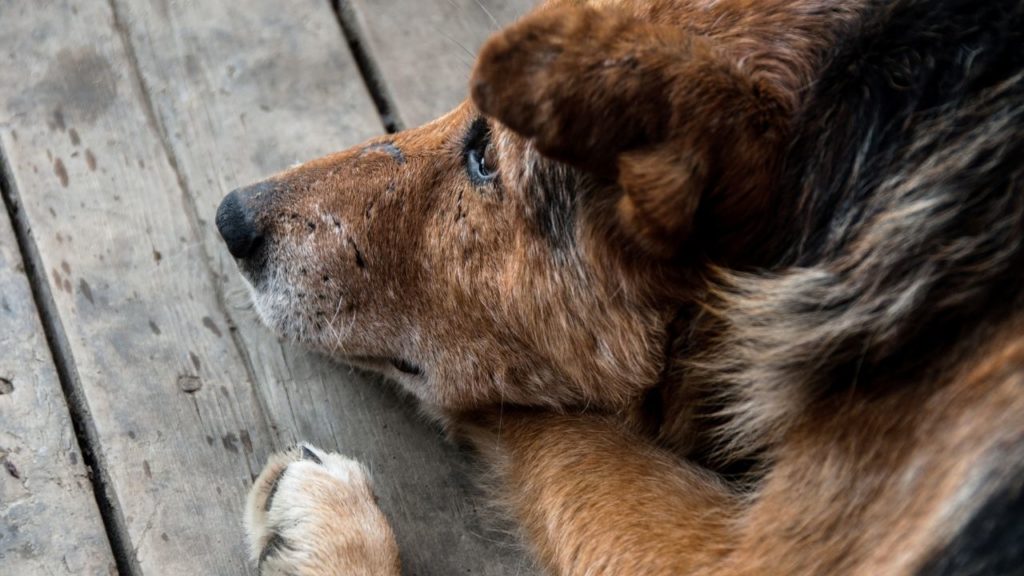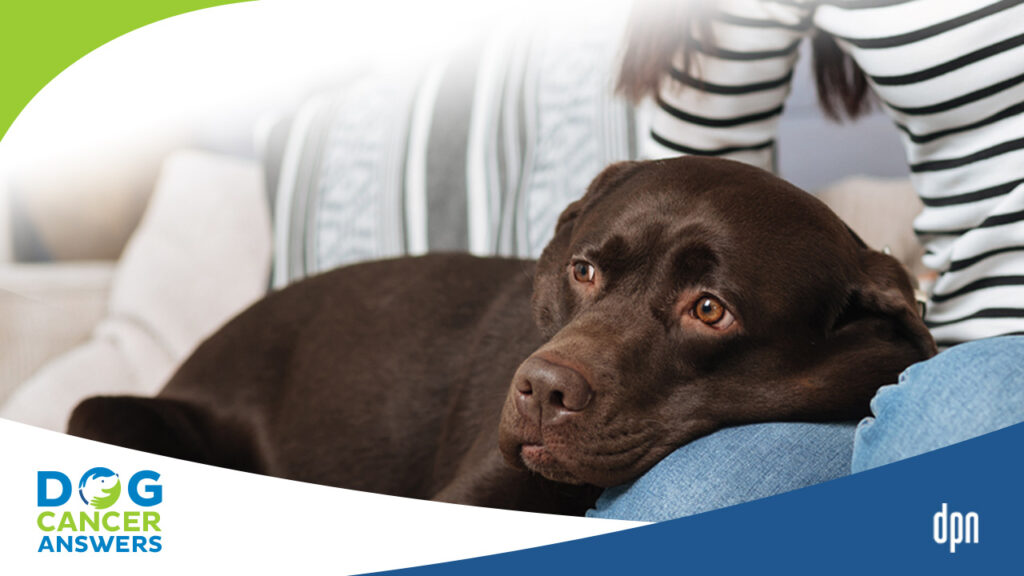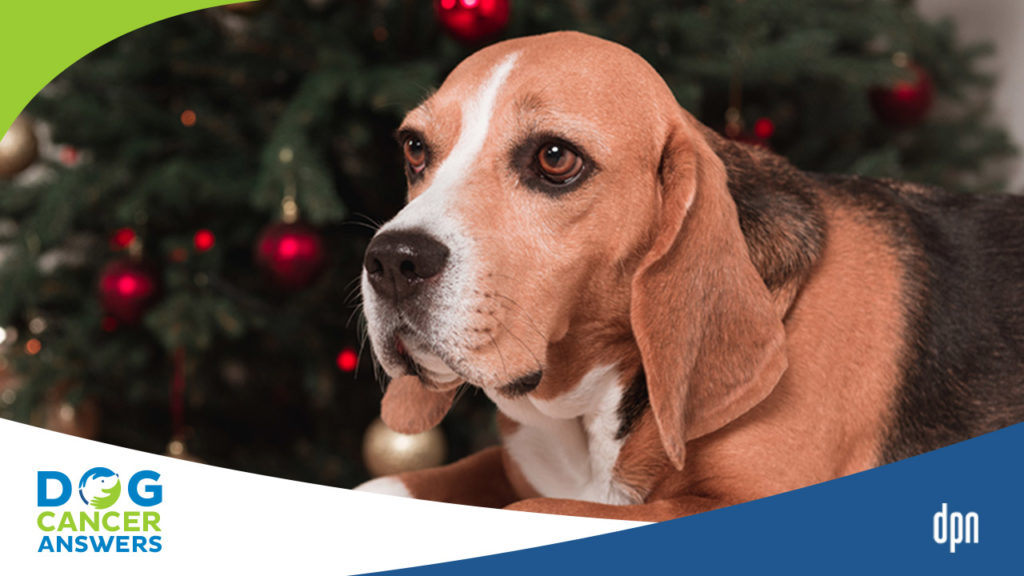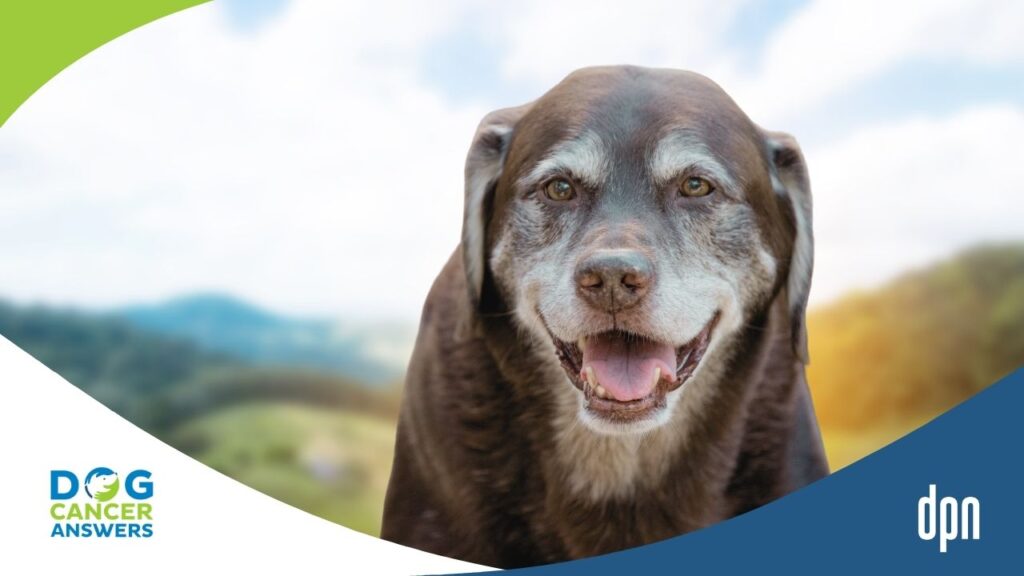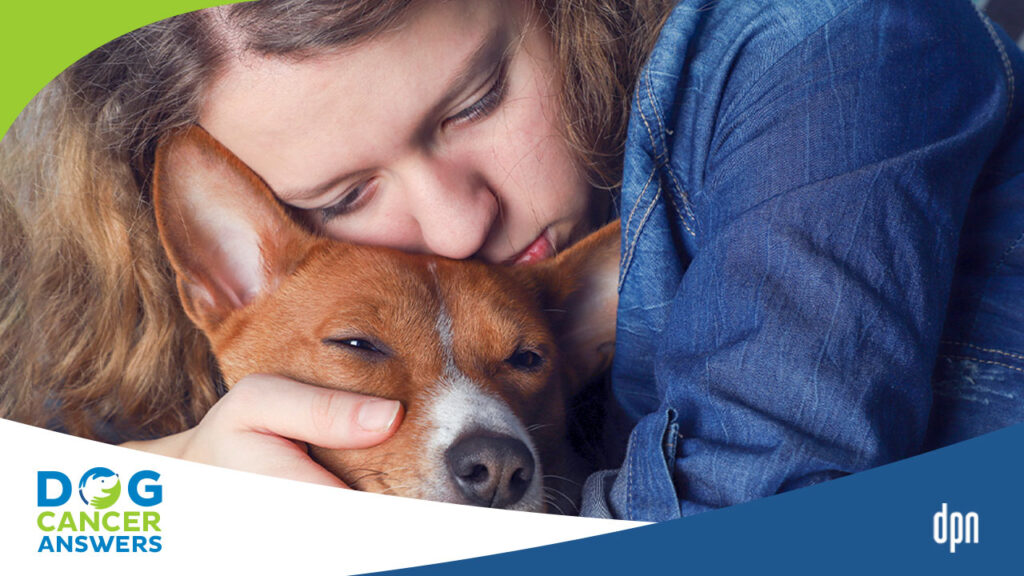EPISODE 113 | RELEASED March 22, 2021
Dog Euthanasia: What Happens │ Dr. Nancy Reese Q&A
Euthanasia is the saddest topic in veterinary medicine … which is why it is so often avoided until necessary. Our caller, Nessa, wants to know: was her experience typical?
SHOW NOTES
Nessa was surprised by how quickly her dog passed during euthanasia. She felt unprepared and sad that she didn’t get more time to hold her and say goodbye. Nessa is very kind, so she left a message on our listener line. Her question: can you describe the process, so others will be more prepared than I was? And … was my experience typical?
Dr. Nancy Reese, our chief medical editor, joins us for this sensitive discussion. With compassion and love, she describes the process of euthanasia both in the hospital and in the home. By the end of this short episode, you’ll be better prepared to discuss this option with your own veterinarian, should it be necessary for your dog.
Lap of Love Veterinary Hospice & In-Home Euthanasia is a national service that matches you with local veterinarians who are able to come to your home to administer euthanasia. They have wonderful articles and videos on their website: Dog and Cat Euthanasia At Home | Lap of Love Veterinary Hospice
>> Dr. Nancy Reese: [00:00:00] When I actually had to put down my own dog, I couldn’t physically do it myself. And I called one of our home people to come out because I wanted it there and not bring her into my office, where was also her second home. But. I just couldn’t couldn’t do it at work.
>> Announcer: [00:00:20] Welcome to Dog Cancer Answers, where we help you help your dog with cancer. Here’s your host, James Jacobson.
>> James Jacobson: [00:00:28] Hello friend. Thank you for joining us today for a very special Question and Answer episode. Today, Dr. Nancy Reese joins us to answer a listener question about euthanasia, which is probably the very saddest topic in veterinary medicine. Dr. Nancy, we have a question about something that, oh, too many of our listeners have had to deal with, which is euthanasia. Let’s take a listen to the question and get your thoughts on the other side.
>> Nessa : [00:01:02] Hi, my name is Nessa Bakewell. I’m calling from Stratford, Connecticut. One of the topics I kind of wanted to see if it could be addressed is I put my dog down back in November after a long battle with cancer.
And one of the things I never really knew was what to expect on the day that we had decided to put him down. What to expect during the appointment, kind of how quick it went. And I know that it’s something that I kind of walked out of there with regrets that day of not understanding how quick it was going to go.
I kind of wished I was able to hold my dog and to really know if that was an option, but was afraid to ask, but I also didn’t realize how quickly the process was going to go. So I just think it would be a really great topic that hasn’t been addressed before to just kind of, you know, talk to people about what they can expect and how the procedure typically goes, just because I know for me, it’s something I have questions about still to this day. Thank you so much.
>> James Jacobson: [00:01:58] That is such a good question. And I can tell you from personal experience, I’ve had many of the same thoughts. So, Dr. Nancy?
>> Dr. Nancy Reese: [00:02:07] So, I think it is a good subject to think about head of time, which is sort of morbid because you really don’t want to consider that it’s something that has to be done, but unfortunately for a good percentage of owning a dog, I mean, there’s a lot of dogs that do end up having to go through that so that we can eliminate the pain and suffering that we don’t want them to go through. So it’s a tough subject to think about, but a good subject to know what to expect. The process is a little different depending on where you go. And sometimes even the relationship that you already have with your vet, whether they know you very well, or you’re a new client or customer, my favorite ones, if you can use that term, are when I’ve really known this animal for a long time. And, you know, it’s kind of a, a good closure type of scenario, and it’s much more emotional, but, I know what those people might expect or we’ve been through it before together. So it makes the process a little different than a brand new person that we have to sit down and talk about what’s going to happen during the procedure.
Most of the time, the guardian will go in with her animal and there’ll be some kind of check in procedure with the front office. And they’ll talk about the unfortunate, the financial portion of it, but also what to do with the remains afterwards. And it’s something you want to think about, because you don’t want to be on the spot at the time.
Some places allow home burial, other places that’s not legal, but, if that’s something that you would want, you want to make preparations, bring a blanket or something along those lines. Otherwise there’s cremation services that you can either get the ashes back, or not, depending on your preference.
Some places are nice enough that they actually have like, a little comfort room. So a special room there’s music and soft noises and couches and things that make it a lot more comfortable. Other places, my own clinic included, we just use a regular exam room because that’s what we have available, but we try to at least keep the environment quiet as possible and not have interruptions and things during the process.
Most of the time, unless the animal is severely ill or in so much pain that you really want to get it done quickly, most of the time they’re given some version of a sedative. And that’ll be a, sometimes a combination of a pain medication and sedative together so that the animal can be super relaxed, and feeling comfortable, when the final injection is given. The disadvantage is that in some animals, some of the sedatives sting a little bit, so there can be a little bit of pain and a little cry.
It usually lasts for a very short period of time, but it makes the next injection really much more peaceful. So, I always advise clients that there might be a little bit of a cry. Some of them don’t react at all, but if the people are aware of it, It makes it a little easier. Depending on how sick the animal is and how old it is that sedative may take effect within a couple of minutes.
Otherwise some animals may take 10 to 15 minutes before they kind of gradually get really pretty sleepy and woozy and will lie down, and they’ll look like they’re really having a nice deep slumber. At that point, then, the final injection, which we kind of call it an overdose of an anesthetic and it’s usually sodium pentobarbital, but that drug is then administered intravenously.
And the effects of that are extremely quick. Some animals, their heart and brain activity will stop before the injection is even fully given. And I think that’s kind of hard for people to see sometimes. Cause that can even be given without a sedative first. And the effect can still be that quick. So, if you have an animal who’s up and looking pretty alert and within 30 seconds, they’re not, that can be kind of a shock.
And I’ve had people express dismay that it was so quick. Now an animal that’s in pain and really suffering, that’s a true blessing to be able to get it done as quick as possible, really is a lot easier. But, when we want to have that really long time to be with them and say goodbye and things, that quickness of that injection is sometimes hard to watch.
So, I do try to, if we sedate the animal, we really try to make that portion last quite a while so that we can all talk about stories of the animal, and, and relive some of those really good moments in life, before we give the final injection. So it is a little scary sometimes to see how quick it can react and it’s different for different animals.
Like I said, a really sick animal is probably going to go down much quicker than a young, healthy dog, but there’s a few animals that also take a very slow reaction to it. And if their circulation is not good and things, you can sometimes give the injection and you see the animal, keep going, it’s still breathing and beating, and those are somewhat unexplainable as well. But we have the opportunity then, especially if they’ve been sedated, to just give more of it, but every animal is, is sort of unique and they can have different types of reactions. But, if we talk about it ahead of time, then people aren’t shocked at whichever way things go.
The other thing after, is that some animals that they can still have a little skin tremoring, so there’s little muscle reflexes. So it’ll look, you know, maybe the hair will be moving a little bit or some animals it’ll be a reflexive type of, it looks like the animal is trying to take a big deep breath.
And it’s really just the rib cage and diaphragm reacting. So it’s not the animal trying to wake up. The heart is usually stopped at that point, but, that can be a little bit of a shock for people too. And again, we try to warn people of some of these things that they might see. So they’re not caught unawares.
The last point that I want to make is right now with COVID, it’s extremely challenging because some places that have such a hotbed that even for euthanasia, they’re not allowing guardians to come in with their animals. And that to me is really heartbreaking. I understand why they do that, but we have made exceptions for euthanasia. We try to have people definitely have masks on and come into the room with as few people as possible.
But I just, there’s no way I could deny somebody that wants to be present for that because of the illness. So, you know, that’s a tough situation right now.
>> James Jacobson: [00:08:32] I think, knowing and talking about it with your vet ahead of time is definitely some great advice. I personally had an experience with one of those dogs, my heart dog, who, um, it took a long time after the phenobarbital.
And that was just tough. And I obviously was not expecting that. So it was what I call seven barks, but she had a lot of life in her and she just didn’t want to go. Talking to your vet’s important. I know that obviously the COVID piece complicates things. But I know that there are some veterinarians who almost are specialists in euthanasia and they’ll come to your home.
Talk about that.
>> Dr. Nancy Reese: [00:09:09] That’s another good point. That definitely is a great option for some people or the animals. We have a couple in my area and we refer out to them quite a bit because it’s so much, more personal. There’s no other noise from, you know, other things going on in the office and it can be at home where the animal is usually more comfortable, unless they’re very protective of their home environment, but that is really a nice chance for everybody to be more at ease.
Um, and that the home euthanasia is, like I said, it’s a really nice process, if you have somebody that that is good. And when I actually had to put down my own dog, I couldn’t physically do it myself. And I called one of our home people to come out, because I wanted it there and not bring her into my office where, was also her second home, but I just couldn’t do it at work.
>> James Jacobson: [00:10:05] Absolutely. I think we will share some, uh, links in the show notes for services. I think there’s some national services that do it and referrals, but that is a really powerful thing. And if that is an option, I know that it’s something worth looking at, but again, communicating all of this with your vet ahead of time so that it is not a surprise. Dr. Nancy, thank you so much for being with us.
Thank you. It’s a tough topic, but if people can do it ahead of time with their vet, it really does make it easier on everybody.
I agree, Dr. Nancy, thank you so much for taking the time to explain it so carefully. And listeners thank you for tuning in and listening, for being there for this tender topic. If you’re looking for even more support, I have a personal suggestion for you, and I’ll tell you right after this super quick break.
Okay. We are back. I want to share with you something special that’s near and dear to my heart. I know that when I had to put down my dog, Maui, who was my heart dog, I was miserable for a long time. It hit me like a ton of bricks. And I had a lot of folks in my life, including readers of my memoir, How To Meditate With Your Dog, who understood what I was going through.
I honestly don’t know what I would’ve done without the love and support of my family and friends and all those thousands of folks who offered their condolences. In fact, it was Maui’s death back in 2008, that basically moved me to start working with dogs as my sole focus in business. Without that heartbreak, I am not sure what I would be doing right now, but without that support that I got, from so many people, I’m not sure what I’d be doing right now, either. It was so meaningful to me. And if you need support, advice, ideas, tips, or just a place to lean on others for a moment, I invite you to join our private Facebook group called Dog Cancer Support. The link is in the show notes, or you can get there using the URL DogCancerSupport.com or of course, search for Dog Cancer Support on Facebook and join that way. The group is filled with thousands of loving, compassionate people who understand how important dogs are to some of us. It’s nonjudgmental and supportive and kind. And of course, because it’s on Facebook, it is free to join. Again, the link is in the show notes for this episode, which you can also find in your podcast app or on our website, which is DogCancerAnswers.com. Now on DogCancerAnswers.com, you will also be able to find our entire back catalog of episodes, which covers as many topics as we can think of
Those touchstones remind me to tell you that you can also leave your own message on our Listener Line and it may become the basis for a future show. I particularly love it when someone like Nessa, today’s caller, takes the time to call in and ask a question that they wish had been answered before they went through their experience.
These episodes are often the most listened to and the most helpful ones. So, ask yourself, dear friend, if you’ve already been through illness with your dog, is there something that you wish you had known the answer to back then? Or, is there something, like Nessa’s surprise at how quickly her dog passed, that still bugs you? Call (808) 868-3200, and leave that on our recording service. It’s basically a voicemail. You will be passing forward a kindness to thousands of dog lovers in the future who will wonder the exact same thing. Again, the Listener Line is (808) 868-3200, and you can leave that message 24 hours a day, seven days a week.
Well, that is about it for today’s show. I personally got a lot out of the question and Dr. Nancy’s answer. So again, Nessa, thank you for your call. And listeners, don’t forget to follow us in your favorite podcast app and like us on social media media and review us on Apple podcasts and share this show with at least five of your friends. It will help so many folks to be prepared if they ever faced this devastating experience with their own dog. Following or subscribing is free and easy, and it really helps our show rise in the rankings, and that helps other dog lovers find us just when they need us. Again, thanks for listening today. I am James Jacobson and from all of us here at Dog Podcast Network, we wish you and the dogs in your life a very warm Aloha.
>> Announcer: [00:15:37] Thank you for listening to Dog Cancer Answers. If you’d like to connect, please visit our website at DogCancerAnswers.com or call our Listener Line at (808) 868-3200. And here’s a friendly reminder that you probably already know: this podcast is provided for informational and educational purposes only.
It’s not meant to take the place at the advice you receive from your dog’s veterinarian. Only veterinarians who examine your dog can give you veterinary advice or diagnose your dog’s medical condition. Your reliance on the information you hear on this podcast is solely at your own risk. If your dog has a specific health problem, contact your veterinarian.
Also, please keep in mind that veterinary information can change rapidly. Therefore, some information may be out of date. Dog Cancer Answers is a presentation of Maui Media in association with Dog Podcast Network.
Hosted By
SUBSCRIBE ON YOUR FAVORITE PLATFORM
Topics
Editor's Picks
CATEGORY


